Estate agents looking to make lucrative sales are increasingly using AI technology to help win over potential buyers scouring online for ideal new homes.
Filling empty rooms with virtual furniture and artworks, brightening the skies and even artificially enhancing the lighting are among the tech techniques being noticed by property hunters online.
Tips are being shared on how to spot the listings as it appeared an estate agent supposedly used AI to enhance photographs of a UK rental property listing – with mixed results.
Image enhancement software suggested laminate flooring had been slapped in a fireplace, while the front door had no handle. The driveway, however, still had weeds.
Estate agents Connells maintained that its listing for a four-bed house on White Road in the Cowley area of Oxford was ‘fair and accurate’ – and the use of AI has not dented the property’s prospects, as a let has been agreed.
Nevertheless, property experts have warned that would-be buyers and tenants risk being disappointed by properties that look less gleaming than the photographs suggest – urging estate agents to tread with caution in their use of AI.
Computer enhancement, however, is now rampant – with new listings being discovered by property sleuths by the day.
The Daily Mail ran a number of photographs from listings through a number of artificial intelligence detection tools, which suggested photos appeared to bear the hallmarks of AI image manipulation.
Some of the pictures appeared to have unrealistically blue skies, one analysis tool suggested, as if the typical cloudy skies of Britain had been removed to make the property look more enticing.
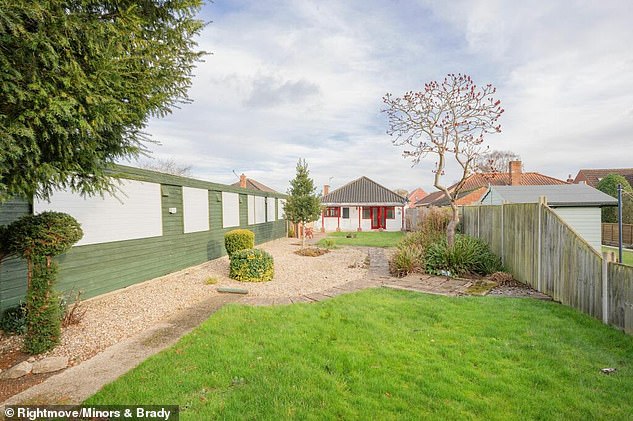
The estate agent promoting this property in Norwich has explained its use of AI in imagery
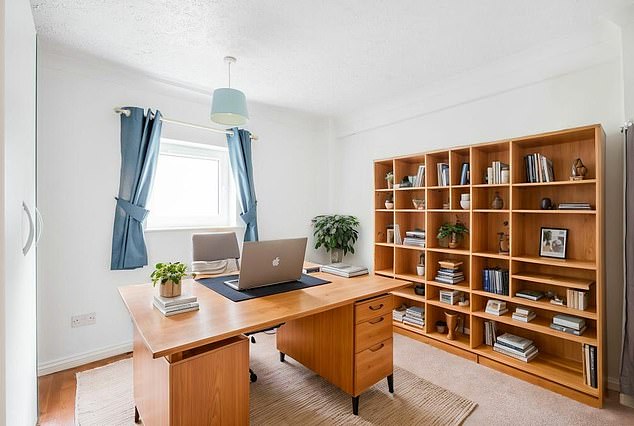
The listing features images containing furniture that was added using artificial intelligence software – none of the furniture in this room is real
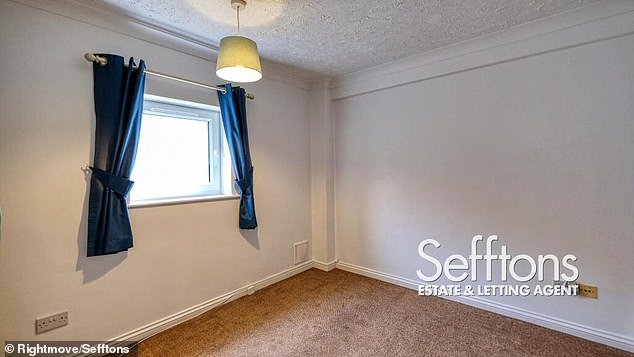
The same room with no furniture inside, as seen in a previous listing, which suggests the lighting may be a little more subdued
Others had seemingly been manipulated to make rooms appear brighter, or had furniture added to seemingly give a sense of how they could be used.
Among those discovered is a home on Greenborough Close in Norwich, listed by agents Minors & Brady (no relation to the co-author of this story).
It boasted incredibly bright rooms – despite the vertical blinds being half-closed – and curtains with no rail: a detail seemingly missed by the AI enhancement tool.
One bedroom even featured curtains that did not match their reflection in a mirrored wardrobe.
Older photographs of the home that were not enhanced with AI appeared to paint a clearer picture, with dimmer lighting more akin to that enjoyed by residents.
The description for the property, now off the market, does state: ‘The contents within this image have been added digitally for illustrative purposes only and do not reflect the current physical state of the property.’
And the firm claims that the enhanced pictures are a hit with prospective customers.
Minors & Brady property consultant James Harwood told the Mail: ‘Every branch, we all have some properties helped by AI.
‘We have a lot of empty properties in this area, or with elderly residents going into care homes, so for people looking to buy it’s nice for them to see what a furnished home would look like rather than seeming an empty shell.
‘We do make that clear in the description. No one seems to mind – we get good feedback from people who seem to appreciate it.’
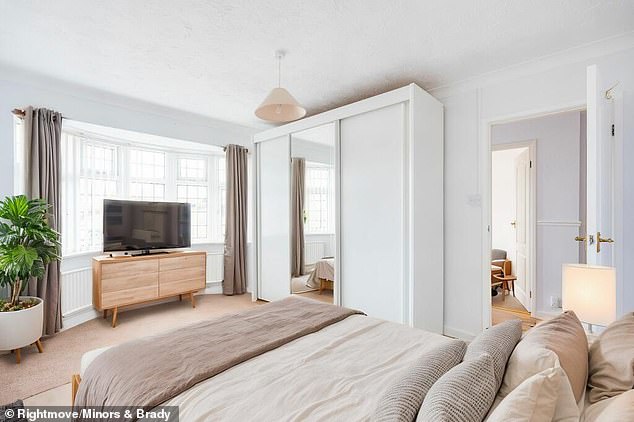
This bedroom has been enhanced with AI to brighten up the room and to add furniture – including a television that doesn’t appear in the mirror and curtains with no rail
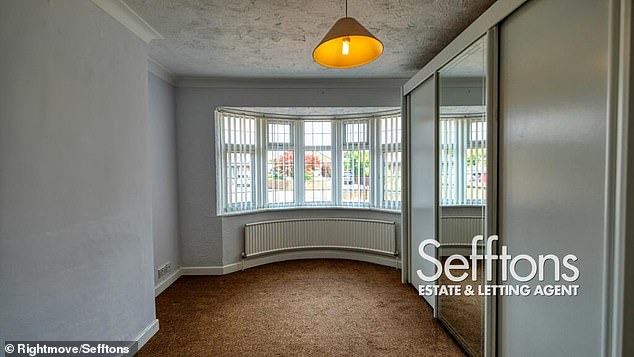
The room as it appeared in an older property listing – with rather more subdued lighting. It also appears smaller than the previous image suggested
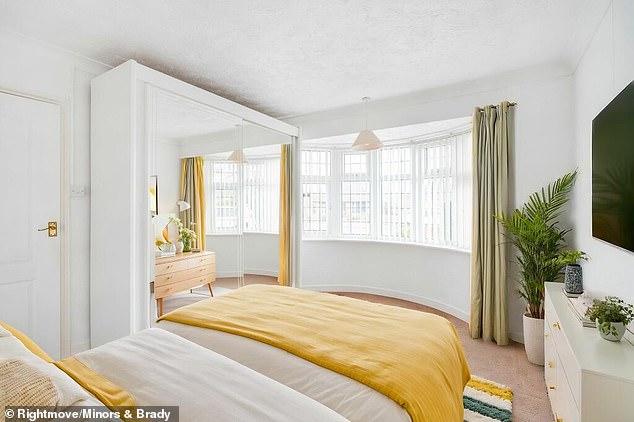
Another picture of the home featured entirely different curtains and tables in the reflection of the wardrobe mirror
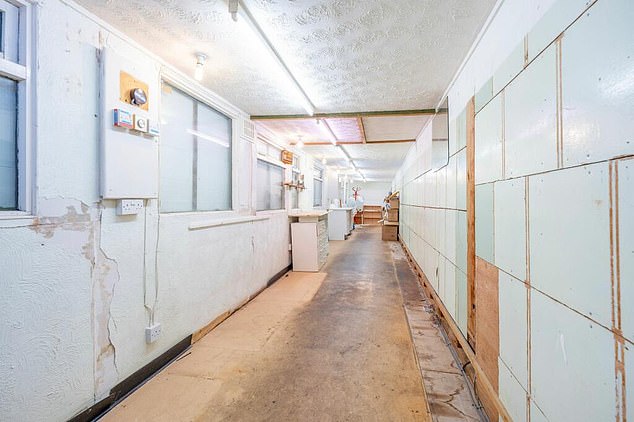
The Norfolk property comes with a workshop area that looked bright and airy in the enhanced photographs
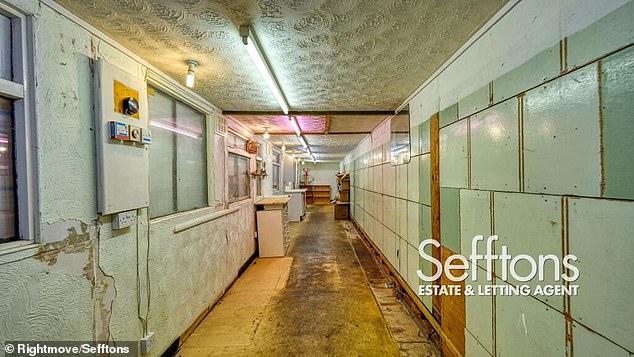
It looked somewhat different in an older listing, however – suggesting the other images may have been gently enlivened
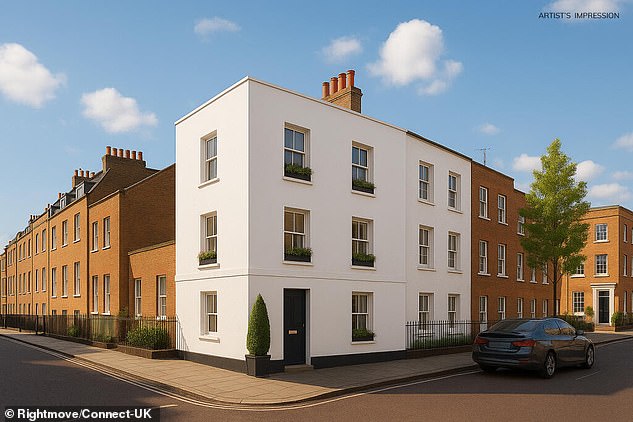
This listing in Bouverie Place in the central London district of Westminster decided to spruce up the other buildings around it at the same time
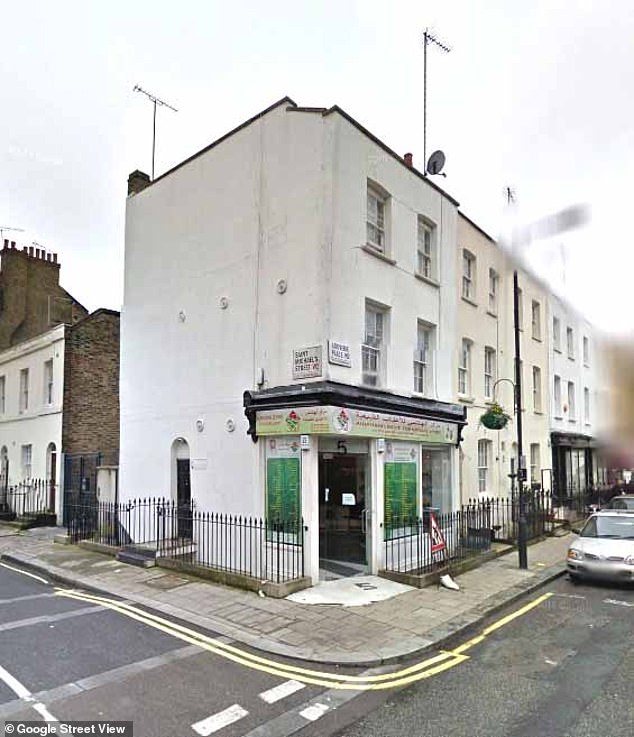
This is a scene of the corner in west London shared on Google Street View – rather different from the AI-generated version in practically every way
A £525,000 five-bedroom home in the Bedfordshire town of Wixams has a Rightmove listing that states: ‘To show this property’s full potential, some photographs have AI generated furniture, whilst using original pictures of the rooms.’
The company meanwhile describes the home as ‘a fantastic opportunity for those looking to create a home that reflects their personal style and needs’.
The official listing adds: ‘While the property is in good condition and ready for immediate occupancy, it also offers tremendous potential for redecoration and modernisation.
‘Whether you choose to update the bathrooms, refresh the décor or reimagine the garden, this home provides the space and versatility to bring your vision to life.
‘The combination of a spacious and flexible layout, a quiet and desirable location, and the opportunity to personalise makes this property a rare find.
‘With its blend of comfort, practicality and potential, this home is perfectly poised to become a cherished family residence for years to come.’
One estate agent decided to improve the exterior of a four-floor townhouse with AI – with the software going as far as to do-up the homes around it as well.
The property on Bouverie Place in west London was sold for £1.31million – £310,000 – above its asking price.
But ‘artist’s impressions’ appeared to bear the hallmarks of AI – as surrounding buildings morphed into different shapes in each image, one of which presented the home as a residential block.
Another presented the property as a pub – the lettering fuzzy at the edges and the lines not quite straight. This is usually an indicator of AI, which struggles in areas of precision such as writing.
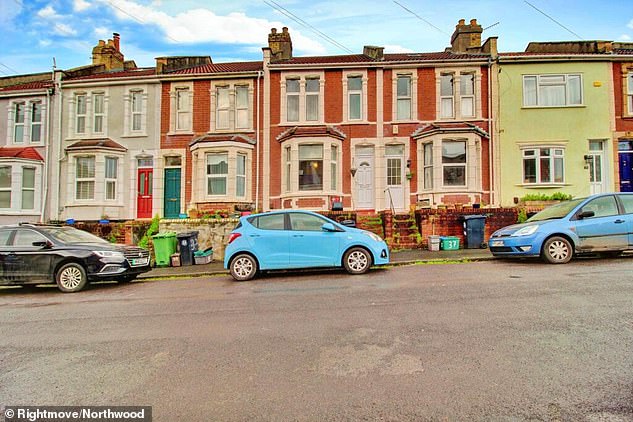
This photo accompanying a property listing for Bedminster in Bristol has attracted attention for its seemingly oversaturated colours
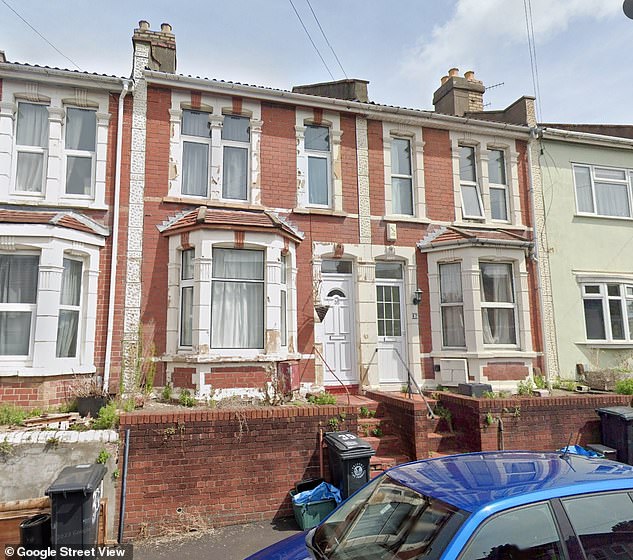
Google Street View images paint a rather less saturated picture – probably more in line with how it looks in real life
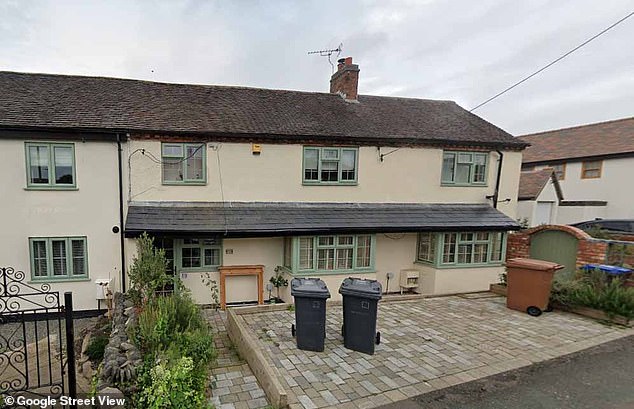
A house previously listed for sale in Higham-On-The-Hill in Leicestershire has some AI-generated surprises in store inside
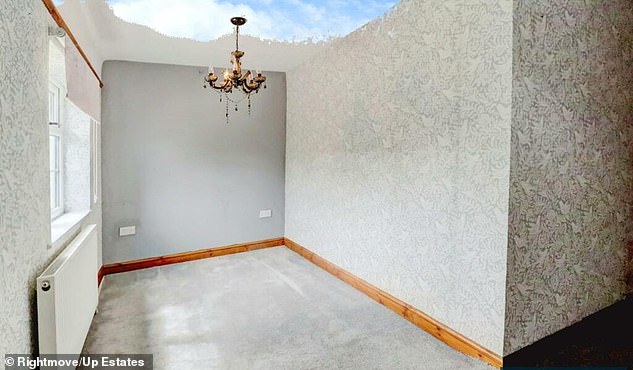
Would-be buyers will be amazed to find the house appears to have the sky inside in what can only be assumed to be an AI generation gone wrong
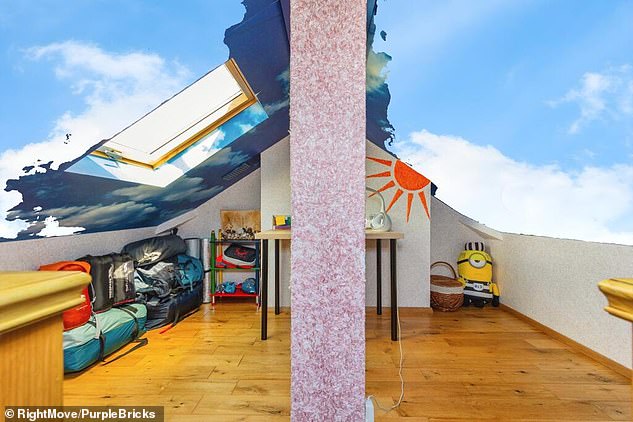
Similarly, this house in Audenshaw, Greater Manchester appears to have shorn its roof to offer an unparalleled view of the sky from inside the attic.
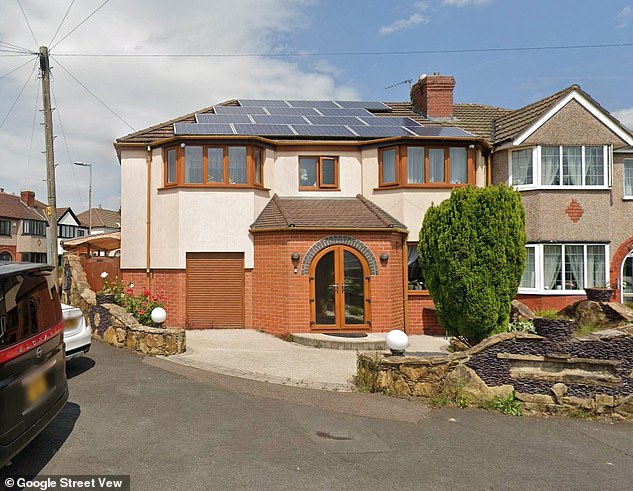
Viewers may find themselves disappointed when they realise the house’s roof is intact
Sometimes it goes wrong – with hilarious results. A house in Higham-On-The-Hill in Leicestershire was listed with a ceiling that morphed into perfectly blue sky – as did one in Audenshaw, Greater Manchester. Both had intact roofs, by the by.
The trend isn’t going unnoticed, appearing regularly on Reddit discussion board r/SpottedOnRightmove.
One user opined of the latest trick adopted by estate agents: ‘There’s a difference between helping people see the potential whilst showing what they have to work with and potentially catfishing.’
Among the AI detection websites used to corroborate online photos, one judged a bedroom shot to be ‘Artificial’ – adding: ‘This image is highly likely to be generated by AI.’
A bedroom inside a house in Scunthorpe, which was completely even in tone and lighting despite the sunny day outside, was, one checker said, either completely or ‘significantly’ created by AI.
Experts have suggested that AI is the latest in a long line of techniques used by estate agents to show homes at their best.
In the past, agents have used wide-angle camera lenses and flash guns to make rooms look bigger and brighter than they are. AI, some have said, is the logical next step.
Babek Ismayil, founder of property business OneDome, told Daily Mail: ‘What matters is how far it’s taken. If AI starts adding or removing key features – like fireplaces or windows – then buyers may feel misled when they view the property in person.
‘Used responsibly, AI has a real role to play in improving property marketing. But agents should be upfront about what’s been digitally altered. Buyers aren’t expecting perfection – they’re expecting honesty.’
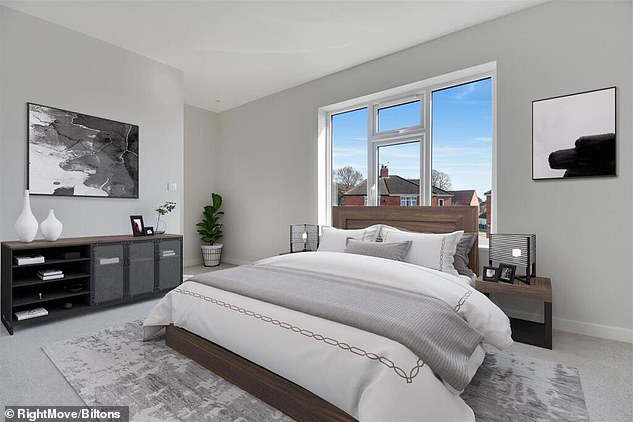
Reddit users have suggested the bedroom of this home in Scunthorpe has been generated with AI
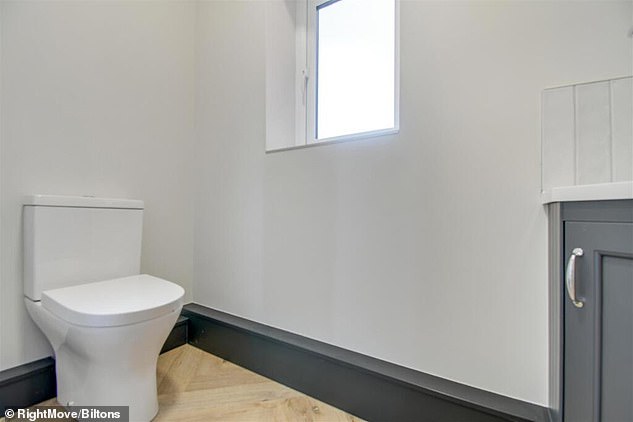
The bathroom appeared to feature a toilet that did not sit in line with the wall
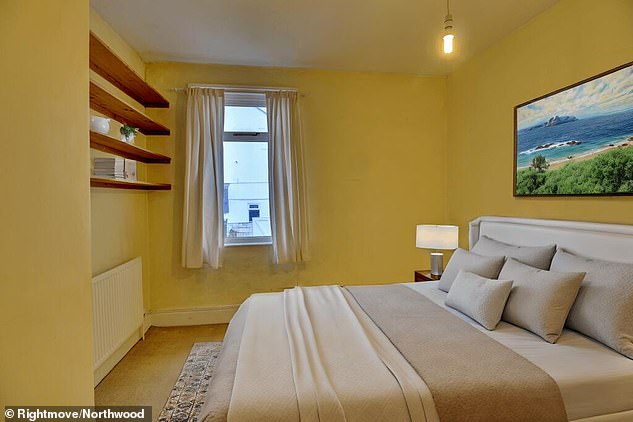
Artwork on a wall inside this property in Bristol district Bedminster has sparked conversation – suggesting not everything was it seems
And Marion Ellis, a chartered surveyor with Love Surveying, warned that overzealous ‘staging’ – the efforts made to present a house for sale or let – could risk breaching trading standards regulations.
She cited a recent example she encountered, where enhanced photos had disguised a ‘doer-upper’ as being ready to inhabit.
‘Homebuyers today are highly visual and emotionally driven. A staged property can help them form a connection – that’s the point. But if the home they visit doesn’t resemble the AI-enhanced images they saw online, it creates distrust,’ she said.
‘At best, it’s a disappointment. At worst, it undermines the entire sale. The real value of physical home staging isn’t just how it looks; it’s how it feels.
‘AI can’t do that. Buyers can sense the difference, and it raises a red flag in their minds – if the images online have been edited, what else has been altered?
‘If agents or developers do use AI staging, my advice is simple: be transparent. Flag it clearly in the listing, and make sure buyers understand what is and isn’t real. Trust is everything in a sale.
‘Platforms like Rightmove, Zoopla and estate agents themselves should lead the way in including clear AI disclaimers, so buyers aren’t misled or left feeling deceived.’
Sam Richardson, deputy editor of Which? Money, said: ‘Finding the right home to buy or rent can be tricky enough without having to worry about AI or edited images.
‘With home buyers and renters likely needing to view several properties, this could waste their time and money travelling to viewings of properties that look nothing like they do online.
‘But this also makes it even more important to view a property in person before parting with any money – and if buying a home, strongly consider getting a survey.’
Daily Mail contacted Rightmove, whose site shares all the properties mentioned above, as well as individual agencies involved, for comment.
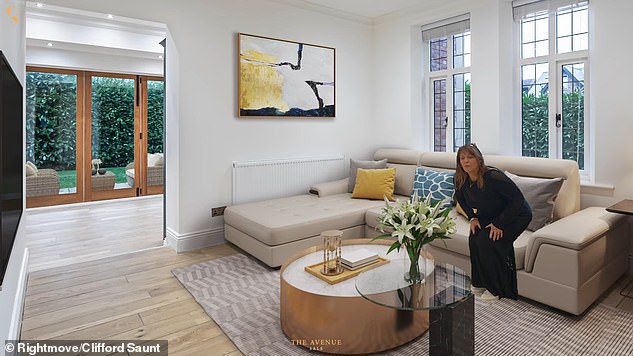
Pictures of this property in Altrincham that sold for £900,000 have also been shared online, with the interiors being generated either with AI or computer graphics
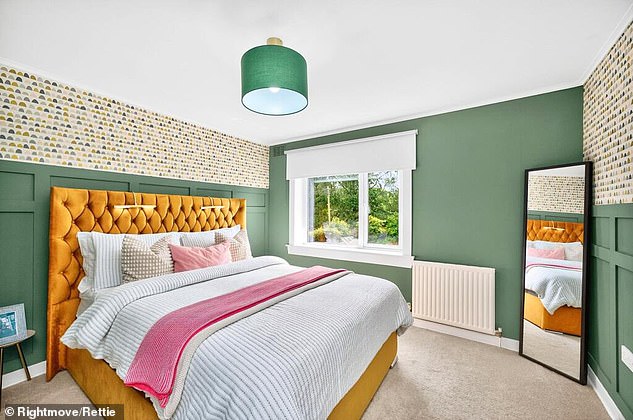
The bedroom of a home in Bardowie, East Dunbartonshire, is shown here
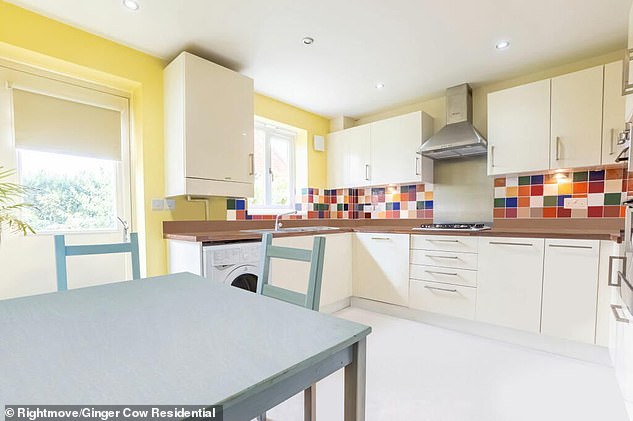
A £525,000 five-bedroom home in the Bedfordshire town of Wixams has a Rightmove listing that tells of some photos having ‘AI generated furniture’
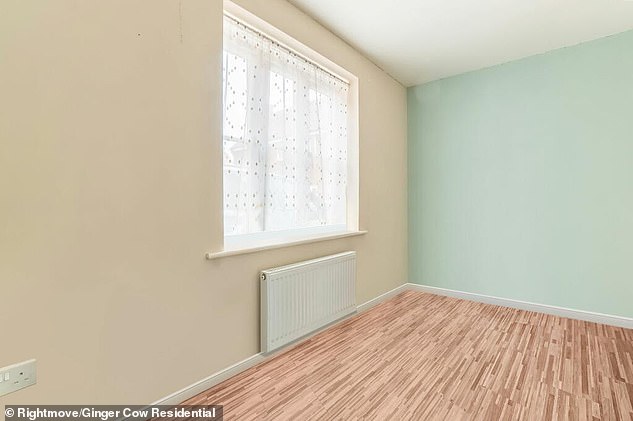
The listing goes on to say that ‘original pictures of the rooms’ are used. It does not specify whether their lighting or colour has been enhanced
The Mail previously revealed how estate agents Connells – recently implicated in a preferential selling scandal that saw it allegedly sell homes to its mortgage customers rather than higher bidders – had used AI to enhance photos of a home.
The house listing first appeared on internet message board Reddit, where users suggested that the images of the house were real – but had been fed through AI image manipulation software to make them look ‘nicer’.
The photographs appear to be based on real pictures taken at the property – but have undergone modification to make them more appealing.
Close examination of the images show they bear the hallmarks of AI – with erratic smudging and odd proportions of small details.
The external view of the property featured an extraordinarily blue sky and extremely saturated colours. The front door’s window sits out of skew with the frame – and the door itself has no handle.
Inside, the living room features a fireplace patched up with laminate floorboards identical to that used on the floor itself. Oddly, a pot packed with stationery on a table appeared to be almost empty when reflected in the feature mirror on the wall.
One bedroom appeared to have a table lamp that melted into the wall behind it.
In the bathrooms, products such as shower gel and soap had smudged, unreadable labels – a telltale sign of AI use.
Some of the images in the listing did not appear to have been manipulated. But the Oxford listing illustrates a growing trend for AI use in more industries, including among estate agents.
There are multiple tools targeted at estate agents online that promise to use AI to spruce up property listings – sold as tools to help them save time and move homes on quicker.
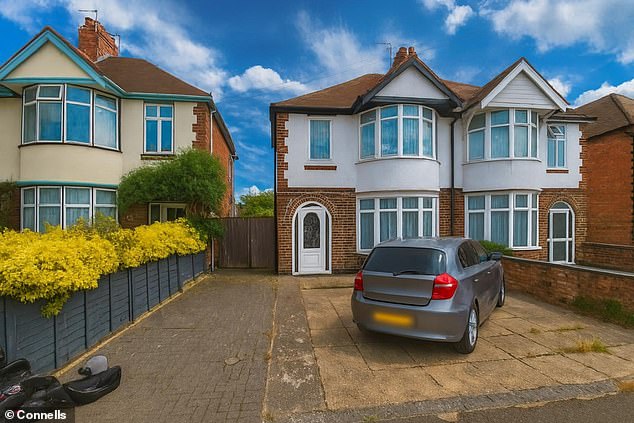
Spot the difference: the seemingly AI-enhanced image of a home in the Cowley area of Oxford
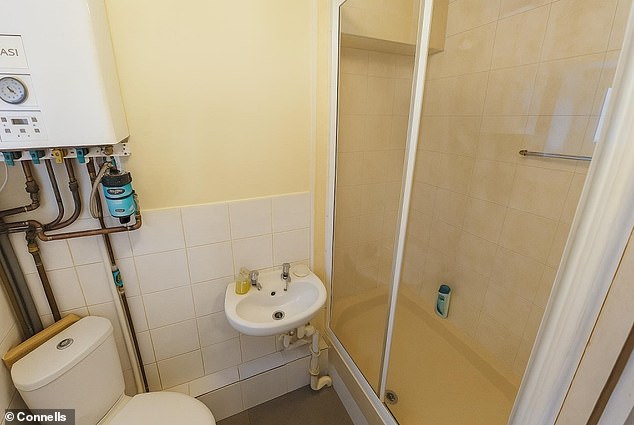
Here is a photo showing a more muted colour palette as well as a front door handle
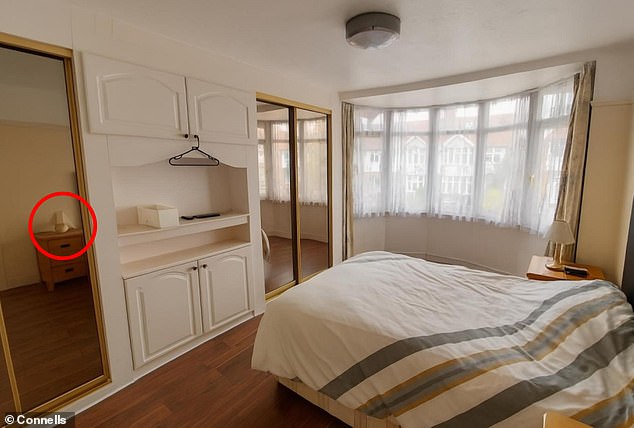
A photo of one of two shower rooms features details such as an unreadable shampoo bottle
One offers to remove dirt, brighten up a room and even replace the sky in exterior photographs for £1.20 per picture.
‘Don’t let a gloomy day ruin your photos,’ it notes.
A Connells spokesperson insisted the listing was ‘fair’, without commenting on the apparent use of AI.
They said: ‘All of our listings are fair and accurate. They allow people to see what is on the market and help them to decide whether or not they might wish to view a property.’
The representative declined to answer the Mail’s questions on whether it would be using AI on future listings.
The use of AI to enhance photographs has sparked concern elsewhere in the world amid concerns that it could be used to cover up flaws in properties.
In Australia, the New South Wales state government has announced legislation requiring estate agents to declare if AI has been used to add some sheen to listings.
Legislators said they had seen examples of estate agents using AI to fit a double bed into a room that was only big enough for a single, and of using AI to disguise damage.
It comes days after the estate agent Connells was implied to have engaged in conditional selling, against the UK industry code of practice.
A BBC Panorama investigation found staff were allegedly prioritising customers who used their in-house services for conveyancing and mortgaging when it came to house sales.
Sometimes, the programme claimed, this would even involve potentially higher bids being overridden in favour of a lower bid from a Connells customer.
In a statement, the estate agent rejected ‘any accusation of conditional selling’ and that ‘no harm has been caused’ to the customer.
It added: ‘It is not the case that customers who use our mortgage services are more likely to successfully purchase a property than those who do not.’










